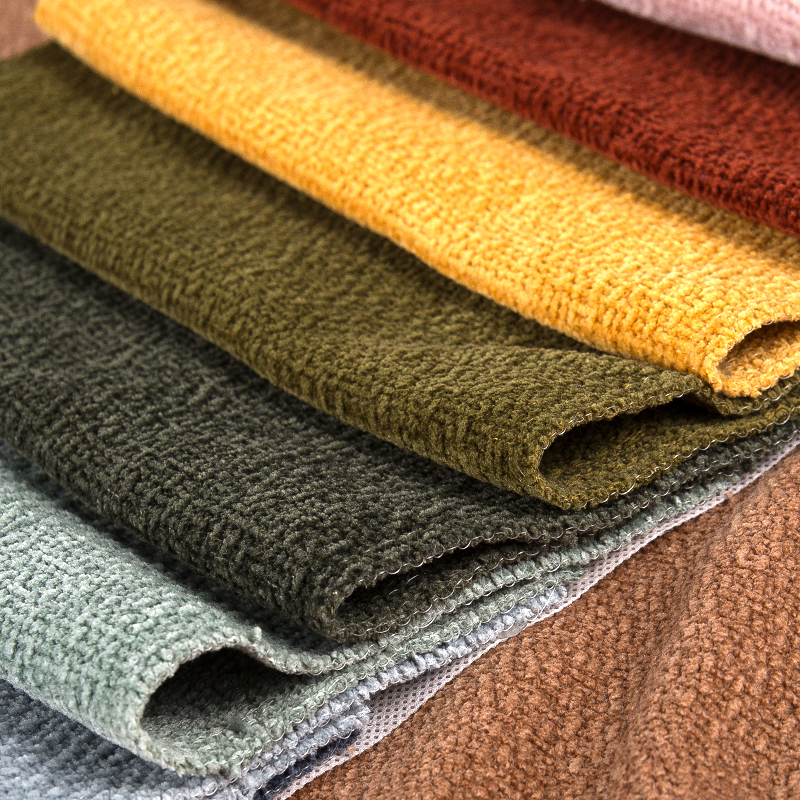Jun 20, 2025
Recycled fabrics have become increasingly popular across various industries due to their environmental benefits and growing demand for sustainable materials. These fabrics are made by reprocessing used textiles, plastic bottles, or industrial waste into new fibers that can be woven or knitted into functional textiles. Their applications are diverse, spanning fashion, industrial use, home furnishings, and automotive interiors.
Fashion and Apparel Industry
One of the largest uses of recycled fabrics is in the fashion and apparel industry. Recycled polyester (often called rPET), derived from post-consumer plastic bottles, is commonly used to produce T-shirts, jackets, sportswear, yoga pants, swimwear, and casual clothing. Recycled cotton, which comes from pre- or post-consumer waste like cutting scraps or used garments, is often blended with virgin cotton to make denim, shirts, and other casual garments. These materials help reduce the environmental impact of clothing production by saving water, energy, and raw materials.
Sportswear and Outdoor Gear
Recycled fabrics are especially valued in sportswear and outdoor gear because they combine sustainability with performance. Brands use recycled nylon and polyester to manufacture waterproof jackets, thermal layers, hiking gear, backpacks, and activewear. These textiles often retain the strength, durability, and moisture-wicking properties of virgin fibers while minimizing the ecological footprint.
Home Textiles and Furnishings
Recycled fabrics are also widely used in home textiles, such as curtains, cushion covers, bed linens, upholstery, and rugs. Recycled blends, including cotton and polyester, can be processed into soft, durable textiles that match the quality of conventional materials. In home décor, using recycled fabrics is both a design trend and a conscious choice aimed at reducing waste and promoting sustainable living.
Industrial and Automotive Applications
In industrial and automotive sectors, recycled fabrics are used for insulation, seat covers, carpets, and headliners. Recycled PET, for example, is increasingly used in car interiors as it provides strength, durability, and resistance to wear while aligning with environmental regulations and consumer demand for eco-friendly vehicles. In packaging, recycled nonwoven fabrics are used for bags, liners, and padding.
Accessories and Footwear
Recycled fabrics are commonly used to make bags, shoes, belts, and fashion accessories. Brands often utilize recycled canvas, PET, and other post-consumer textiles to create eco-conscious designs that are both functional and marketable. This category is growing rapidly, especially among consumers seeking sustainable alternatives in everyday items.
Eco-Industrial Textiles and Construction
In the eco-industrial field, recycled textiles are used for insulation panels, geotextiles, and sound-absorbing materials. Their ability to provide thermal regulation and noise dampening makes them suitable for green building practices. Recycled fabric insulation often consists of textile waste compressed into dense sheets or rolls, offering a sustainable alternative to traditional materials like fiberglass.
Promotional and Corporate Merchandise
Recycled fabrics are increasingly used for eco-friendly promotional products, such as tote bags, lanyards, T-shirts, and banners. Companies seeking to improve their sustainability image often choose items made from recycled textiles to reflect their environmental values and appeal to conscious consumers.
Art and Craft Projects
In creative sectors, artists and designers use recycled fabrics in patchwork, quilting, textile art, and DIY crafts. These materials provide a unique aesthetic while promoting resourcefulness and environmental awareness.
The uses of recycled fabrics span across clothing, industrial design, home interiors, transportation, accessories, and art. As consumer awareness of sustainability grows, recycled textiles are playing an increasingly important role in reducing waste, conserving resources, and reshaping industries toward more eco-friendly practices. Their versatility, combined with environmental benefits, ensures that recycled fabrics will continue to grow in importance across both mainstream and specialized applications.
